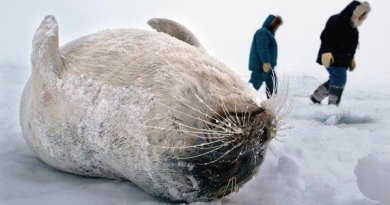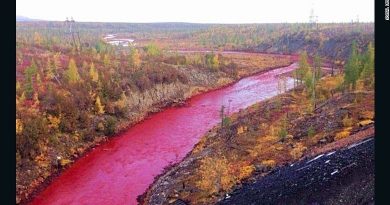Norway’s plan to bring Arctic Council back from a year in limbo

There will be no ceremony as Norway on May 11 takes over as chair of the Arctic Council from Russia. This week, Anniken Huitfeldt presented the priorities for the two years period 2023-2025.
Several months have already passed since Sergey Lavrov sent invitations to his colleagues from the seven other Arctic nations to join him for a traditional ministerial meeting in the Siberia city of Salekhard in May.
None of them will come.
“I will represent Norway, although digital,” says Morten Høglund, Senior Arctic Official (SAO) with the Foreign Ministry in Oslo. He tells the Barents Observer that it is unclear to him how the Arctic Council meeting in Siberia will forms.
“… but, we are in a constructive process with Russian on the transfer of the chairmanship,” Høglund underlines.
Moscow has since spring 2021 headed the Arctic Council, a forum initiated by Finland 26 years ago, which has attracted increased importance as the international society worries about consequences of the ongoing climate crisis.
The work in the Council was put in pause mode a week after Russia’s ordered its all-out war on Ukraine last winter. None of the other circumpolar states wanted to have political contact with Moscow. The spillover effects from the war are still deeply troubling the consensus-based Arctic Council.

Now, Norway will do its best to gain momentum in what can be done with or without the largest of all circumpolar Arctic nations, Russia.
“The work in the Arctic Council moving forward will reflect the current political reality. Nevertheless, we will do everything we can to ensure that the Arctic Council maintains its role as a forum for addressing the most pressing, cross-border challenges we are facing in the Arctic,” said Anniken Huitfeldt as she in Tromsø on Tuesday presented her country’s four priorities for the next two years period; climate, oceans, economic development and people in the north.
She highlighted environmental importance.
“The need for access to data on climate change, and the need to ensure sustainable management of resources that adequately balance considerations relating to the natural surroundings, animal life and the people living in the Arctic.”
The Foreign Minister was on stage together with Espen Barth Eide, Minister of Climate and Environment and climate.
“Climate change is taking place more rapidly in the Arctic than anywhere else. This poses a great threat to Arctic biodiversity, which is very vulnerable. We need to understand more about the impacts of climate change on Arctic biodiversity and ecosystems, both in the oceans and on land,” Barth Eide said.
“Norway will focus particularly on short-lived climate forcers such as black carbon (soot) and methane, an area where the Arctic states have a key role to play. The Arctic Council has a collective goal to reduce black carbon emissions by 2025. As a responsible maritime nation, it is also important for Norway to continue the Arctic cooperation on integrated, ecosystem-based ocean management,” Espen Barth Eide said.
Related stories from around the North:
Canada: Canada needs new approach to meet Arctic challenges, conference hears, Eye on the Arctic
Finland: Russian shoppers take Norway’s Schengen shortcut to Arctic Finland, Yle News
Greenland: Historic Hans Island agreement with Canada moves from Copenhagen to Greenland, Eye on the Arctic
Iceland: Climate, integration & Arctic among priorities in Iceland’s Nordic Council of Ministers program, Eye on the Arctic
Norway: Last Norwegian businessmen in Murmansk mum on customers, The Independent Barents Observer
Russia: Arctic oil-driller Gazprom Neft creates its own private military company, The Independent Barents Observer
Sweden: Sweden, Norway and Finland cooperating to attract workers to the Far North, Radio Sweden
United States: A year after Russia invaded Ukraine, a walrus discovery is caught up in geopolitics, Alaska Public News



